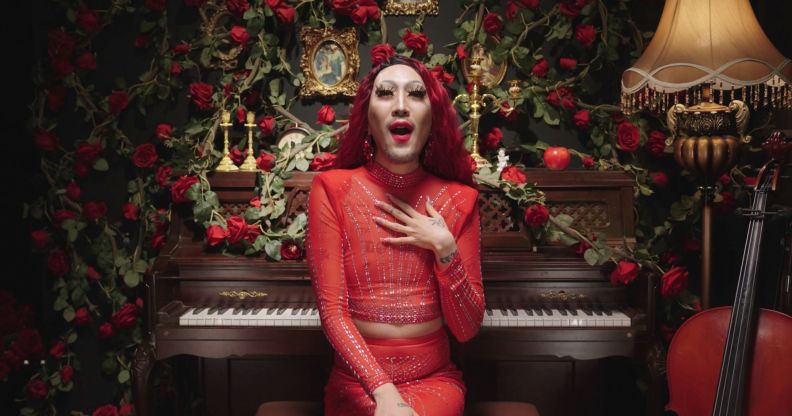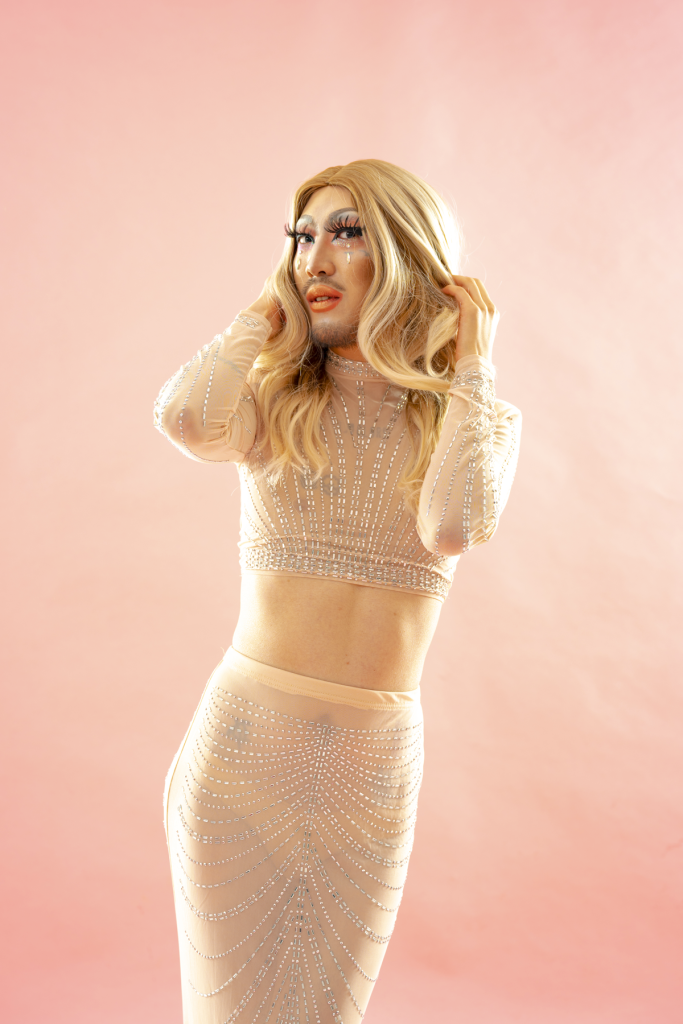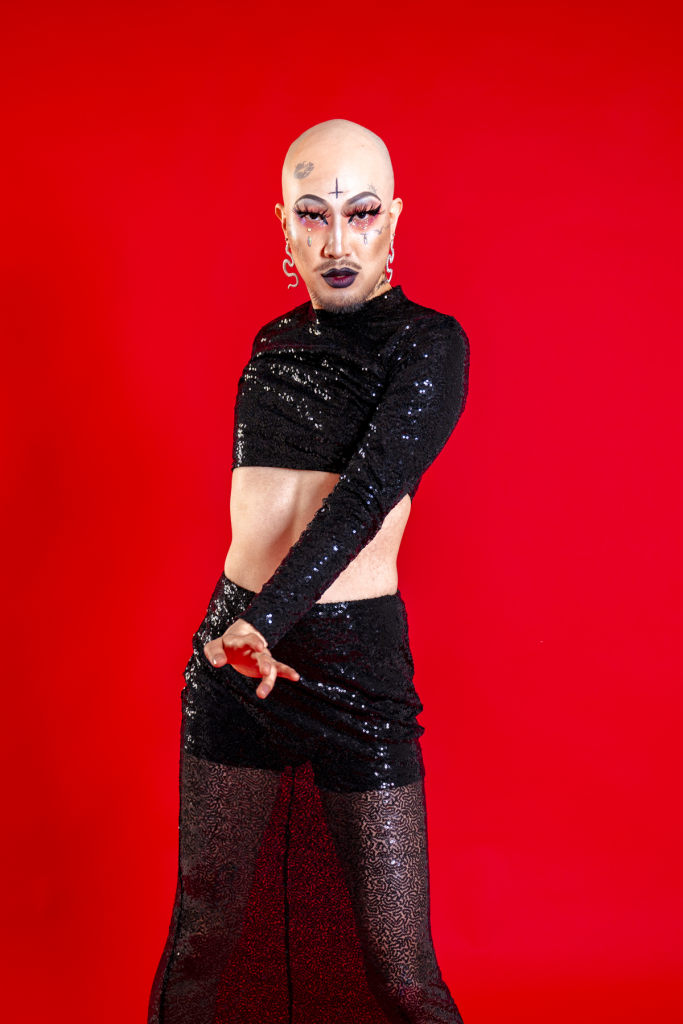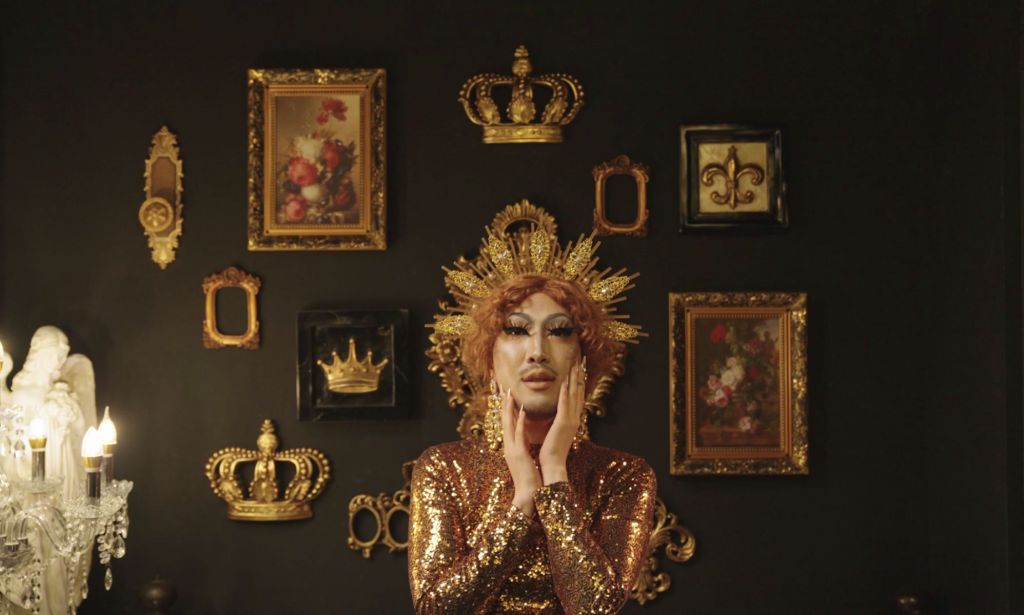South Korean drag artist wants the world to ‘call Korea out’ on LGBTQ+ rights

Heezy Yang, aka Hurricane Kimchi, uses art, music and comics to spread awareness about the LGBTQ+ community in South Korea. (Heezy Yang/Hurricane Kimchi)
South Korea is growing in the global consciousness, with K-pop, K-drama and even K-reality capturing the zeitgeist. But what about Korean LGBTQ+ people?
The Western world is finally opening its eyes to Korean culture – the wild success of Squid Games has prompted Netflix to announce a $2.5 billion investment in new K-content, with other streamers including Disney+ also getting in on the act and K-pop continuing to set trends in music.
But there remains a dearth of LGBTQ+ representation in Korean media.
Anti-LGBTQ+ hate remains rampant in the country, one of the world’s largest economies, because of deeply entrenched social conservatism and entrenched gender norms.
LGBTQ+ people have few protected rights, and South Korea’s evangelical religious groups have huge sway on Seoul’s policy and have been particularly loud in spreading anti-LGBTQ+ rhetoric.
Artist, drag performer and activist Heezy Yang is shining a light on the country’s entrenched anti-LGBTQ+ views and the lack of queer representation through his K-Queer Diaries, a series of bright and colourful comics.

“The comics were designed for English speakers – so not mainly for Koreans – but my Korean friends find it nice because I am telling our story to the outside world and sharing what we’re going through and things like that,” he tells PinkNews.
Yang says it’s important for people to “recognise and be aware” of the problems LGBTQ+ Koreans face. While he believes things “going in the right direction”, he says there’s “a lot of things that need to be done”.
There’s no national law protecting LGBTQ+ people from discrimination based on sexual orientation or gender identity. Same-sex marriage and civil unions remain illegal, and queer couples are prevented from jointly adopting.
LGBTQ+ students face immense discrimination, bullying and harassment at South Korean schools, according to a Human Rights Watch report, while in the military, consensual same-sex intercourse among soldiers is criminalised.

Such anti-LGBTQ+ views have even infected South Korean’s political halls of power. In 2022, president Yoon Suk Yeol appointed Kim Seong-hoi, who had previously called being LGBTQ+ a “mental illness” that could be “treated”, to a top advisory role. Kim later stood down.
Yang says South Korea isn’t “as beautiful” as foreigners might think, at least not for LGBTQ+ people.
“In the lyrics of my new song, I mention an old friend passing so that’s definitely a huge part of the LGBT community,” he says.
“A lot of people are murdered, they die by suicide and things like that and they are going through a lot of stuff, especially with mental health. It’s a very common thing.”
Yang continues: “But there is pure joy, and when you feel that pure joy, it is amazing and that’s what keeps me going. We need joy to live in this world.”
South Korean Pride
South Korea does have a burgeoning Pride movement – Yang was among the 13,000 to attend Seoul Pride in 2022, which was deemed a success despite the threat of Christian and conservative counter-protests.
Yang took part in Seoul Pride in South Korea’s bustling capital as his drag persona Hurricane Kimchi and organised street performances to raise awareness on LGBTQ+ issues.
Drag isn’t as common in Korea as it is in the US or UK, but Yang has noticed more young people joining in with the art form.
“I think even compared to when I was a teenager in high school – I was in the closet and everybody was, being gay was something to be made fun of or bullied. It still probably is often the case, but sometimes I do see teenage drag queens performing at school festivals or something like that or graduation, and people love it or things like that.”

Yang says he is “lucky enough” to be out to his family and friends, who are “OK with it”.
He has a “thick skin” which he “taught [himself] how to grow” over the years, but he says there’s “not a lot of people who are in the same situation”.
For those who have become enamoured with Korean culture, Yang’s request is simple.
“Please be aware of it, please call us out, call Korea out and ask for the change so Korean politicians and higher-ups will be embarrassed and would have to change things.

